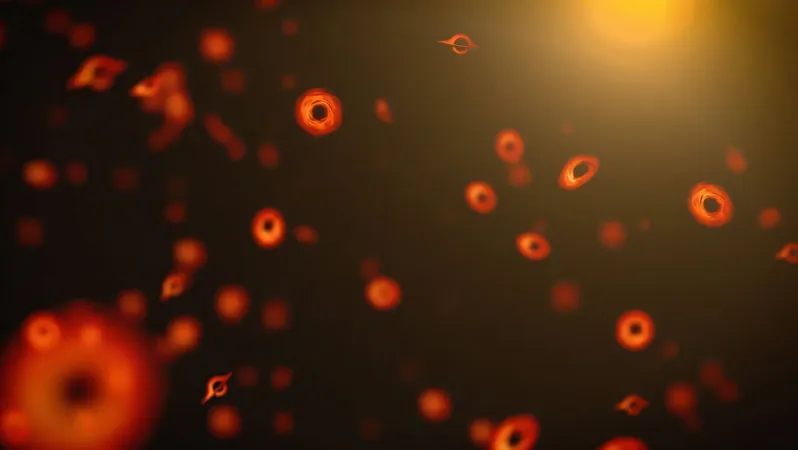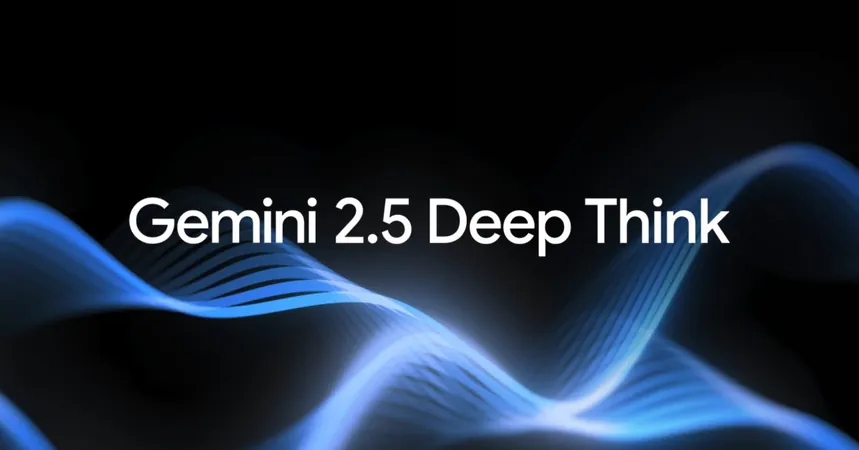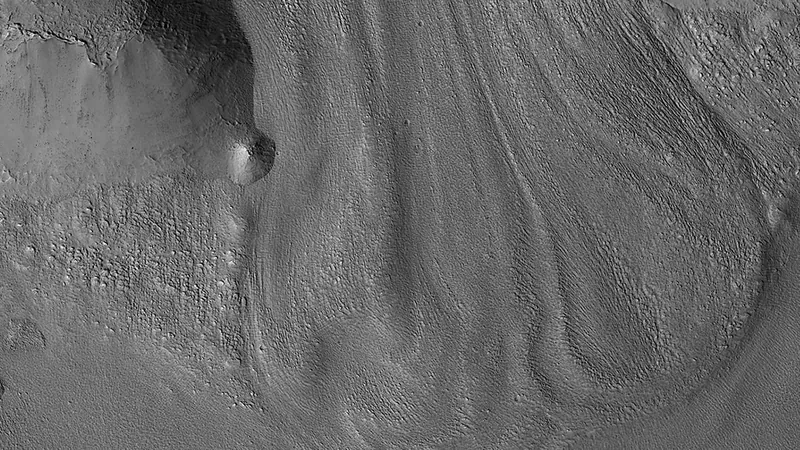
Astounding Discoveries: Could Primordial Black Holes Disrupt Exoplanet Orbits?
2025-07-14
Author: Olivia
What Lies Beyond Our Solar System?
While our solar system seems stable, unseen cosmic forces might be lurking, ready to disrupt the delicate balance of planetary orbits. One of the most intriguing candidates for such disruptions are primordial black holes (PBHs).
The Origins of Primordial Black Holes
Hypothetical and fascinating, primordial black holes originated during the early universe—not from dying stars, but from the gravitational collapse of dense pockets of sub-atomic matter shortly after the Big Bang. These theoretical objects could range from the size of an atom to the mass of asteroids, traveling at unprecedented speeds.
New Research Unveils PBHs' Cosmic Impact
A groundbreaking study led by Garett Brown from Xanadu Quantum Technologies, alongside researchers from Harvard and the University of Illinois, reveals how these elusive black holes could potentially influence exoplanet systems within our galaxy. Their study, available on arXiv, meticulously examines how close encounters with PBHs could alter the orbits of planets.
Simulating Cosmic Encounters
Utilizing simulations, the researchers explored three key questions: How many PBHs might drift into a star's vicinity? What is the probability of a PBH coming close enough to affect a planet's orbit? And what might be the statistical impact on these orbital parameters?
Their findings emphasize that just like wayward stars, PBHs can indeed shift the orbits of planetary bodies. The frequency of these encounters depends significantly on the masses and abundance of PBHs.
The Thrilling Implications
As scientists project that millions of these primordial black holes could exist throughout our galaxy, understanding their potential influences on planetary systems invites thrilling questions about planetary formation and stability. The researchers estimate around 3 million PBHs could be roaming our galaxy, each carrying the potential to create chaos in the orbits of distant worlds.
Challenges Ahead for Astronomers
Despite the exciting implications of this research, astronomers face immense hurdles in observing PBHs and their impacts. Current limitations in precision measurements make it difficult to establish which exoplanets have been influenced by these black holes. However, the authors remain optimistic: advancements in technology may one day enable us to uncover these cosmic mysteries.
The Future of Exoplanet Exploration
As the study concludes, the promise of a future where precision measurements could help constrain the population of primordial black holes lingers in the air. This research opens new pathways for understanding not just the dynamics of celestial bodies, but also the very fabric of our universe.
Ready for more mind-bending revelations? Stay tuned, because the cosmos always has more surprises in store!









 Brasil (PT)
Brasil (PT)
 Canada (EN)
Canada (EN)
 Chile (ES)
Chile (ES)
 Česko (CS)
Česko (CS)
 대한민국 (KO)
대한민국 (KO)
 España (ES)
España (ES)
 France (FR)
France (FR)
 Hong Kong (EN)
Hong Kong (EN)
 Italia (IT)
Italia (IT)
 日本 (JA)
日本 (JA)
 Magyarország (HU)
Magyarország (HU)
 Norge (NO)
Norge (NO)
 Polska (PL)
Polska (PL)
 Schweiz (DE)
Schweiz (DE)
 Singapore (EN)
Singapore (EN)
 Sverige (SV)
Sverige (SV)
 Suomi (FI)
Suomi (FI)
 Türkiye (TR)
Türkiye (TR)
 الإمارات العربية المتحدة (AR)
الإمارات العربية المتحدة (AR)